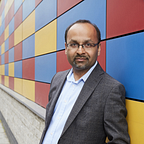We need to think about tackling the Covid Decade for young people
Young people have been hit hard by the pandemic but it’s not clear there is much for them in the Queen’s Speech today. Our recent British Academy review shows the deep social and economic impacts of Covid-19 on the young. Perhaps most prominently, young people have lost the good part of a year of quality education, despite the best efforts of their teachers. The job market has also impacted more on young people than anyone else: a shocking nearly two thirds of the jobs lost in the pandemic so far were by under 25 year olds. And early evidence of the first lockdown suggests it is 16–24 year olds who have suffered the worst mental health outcomes. Not to mention a year of lost fun and friendship. This picture does not yet seem to be well recognised, and ironically the image that may have stuck is that of young people holding illegal student parties and otherwise breaking the rules.
The pandemic exacerbates existing inequalities. It is important to remember that roughly 1 in 3 children lived in relative poverty before the pandemic struck. During the first lockdown, 74% of private schools offered a full virtual day of schooling compared to 38% of state schools. Meanwhile some of our poorest children did not have access to laptops or internet to let them learn remotely. There are heart-wrenching stories of children sitting on trams in order to access free public wifi so they could access their school work.
The impacts of the pandemic on young people will stretch well beyond this year — the British Academy’s review talks about living in a ‘Covid Decade’. Losing out on those early rung jobs in hospitality and retail means a blow to confidence and skills which will last a long time. The Institute for Fiscal Studies has estimated a loss of an average of £40k for each young person over their lifetimes due to loss of education and skills, which amounts to around £350bn over 50–60 years. Equally, it is impossible to quantify the long term mental health effects of the pandemic.
As vaccines help us combat the worst physical effects of the pandemic, it is time society turned to tackling the long term societal impacts of the pandemic. It is also important that we do not let a sense of injustice build up — young people were least at risk from the virus but in many ways have paid the biggest price. Therefore, society owes them a debt which needs repaying.
In the short term we need to look at ways to provide additional opportunities for children to catch up on physical, social and emotional development. The skills system also needs fixing with better funding for further education colleges which have suffered a 12% real terms cut in funding over the last decade, and more flexible and attractive options for employers around apprenticeships and job placement schemes. It is good that there is a focus on skills in the Queen’s Speech, although much of this seems aimed at adults.
Currently children and young people do not have a voice in the policy process — without a vote it is all the more important we find ways to get their input. We need to ask what it would look like to join policy up around young people. There used to be a Department of Children, Schools and Families — we need to revive the mentality that led to its creation and join up policy for young people across areas such as health, education, housing, crime. There should be investment in broadband as a critical digital infrastructure, so as to reduce digital divides. Our review also suggests greater localised support through government and civil society— this might include youth work, green spaces and play areas, investment in sports.
After the divisions of Brexit, one of the small silver linings of the pandemic was that it united us as a country against a common enemy. It is important we do not let a new intergenerational divide became entrenched and grow bitter. The young have endured a lot in the last year for the sake of everyone else: policymakers should be thinking about how they can be supported in the years to come.
